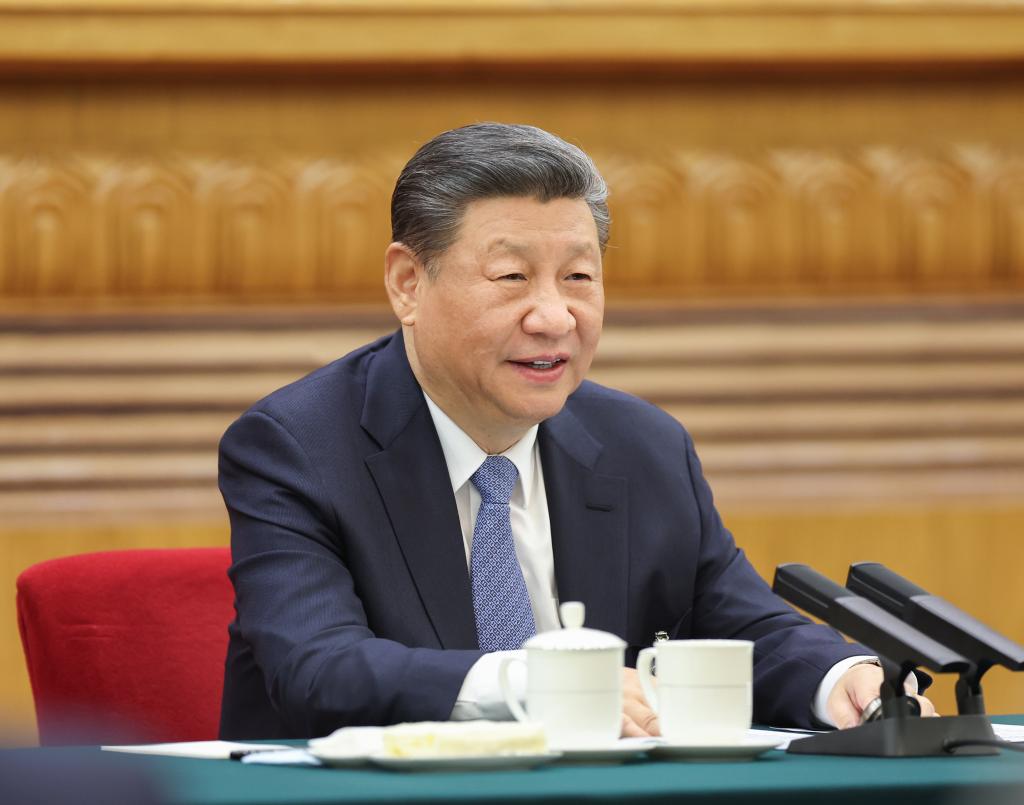Xi stresses developing new quality productive forces


BEIJING -- President Xi Jinping on Tuesday stressed developing new quality productive forces according to local conditions during the second session of the 14th National People's Congress, China's national legislature.
Xi, also general secretary of the Communist Party of China (CPC) Central Committee and chairman of the Central Military Commission, made the remarks when he participated in a deliberation with fellow lawmakers from east China's Jiangsu Province.
Xi called for focusing on high-quality development as the top priority, urging efforts to step up innovation, foster emerging industries, adopt forward-thinking plans for developing future-oriented industries and improve the modernized industrial system.
Developing new quality productive forces does not mean neglecting or abandoning traditional industries, Xi said. It is necessary to prevent a headlong rush into projects and the formation of industry bubbles, and avoid adopting just a single model of development, he noted.
Localities should take into account their own resource endowment, industrial foundation and scientific research conditions in promoting the development of new industries, models and growth drivers in a selective manner, and use new technologies to transform and upgrade traditional sectors into high-end, intelligent and green industries, he said.
Xi expressed approval of the government work report and praised the new progress Jiangsu has made in economic and social development, encouraging the province to firm up confidence and go all out to make greater contributions to the overall national development.
To develop new quality productive forces, Jiangsu must focus on the development of a modernized industrial system with advanced manufacturing as the backbone, and speed up efforts to forge clusters of strategic emerging industries with international competitiveness, Xi said.
He urged turning the province into an important front for the development of new quality productive forces.
Xi called for planning major moves to further comprehensively deepen reform to inject strong impetus into promoting high-quality development and Chinese modernization.
It is necessary to accelerate the improvement of underlying institutions in areas such as property rights protection, market access, fair competition and social credit to build a high-standard socialist market economy system, he said.
Work must be done to support the growth of the private sector and private enterprises and spur the intrinsic impetus and innovative vigor of various business entities, Xi noted.
He also stressed deepening reforms in sci-tech, education and talent management systems to remove the bottlenecks and obstacles to the development of new quality productive forces.
It is also important to foster a world-class business environment that is market-oriented, law-based and internationalized, and create new strengths of a higher-standard open economy, he said.
Xi called on Jiangsu to fully integrate into and contribute to the development of the Yangtze Economic Belt and the integrated development of the Yangtze River Delta, and strengthen synergy with other regional development strategies and major regional strategies.
Urging Jiangsu to build larger-scale innovation chains, industrial chains, and supply chains, Xi instructed the province to leverage its status as an economically developed province to drive and influence both regional and national development.
Xi also called for continued efforts to consolidate and strengthen the momentum of economic recovery to boost confidence in development across society.
He urged resolute measures to rectify pointless formalities and bureaucratic practices. Practical steps should be taken to ease the burdens on those working on the ground, and stimulate creativity within the entire Party and society.
Xi also emphasized steady efforts to enhance people's well-being amid development and ensure workplace safety.
Cai Qi, a member of the Standing Committee of the Political Bureau of the CPC Central Committee and director of the General Office of the CPC Central Committee, participated in the deliberation.























